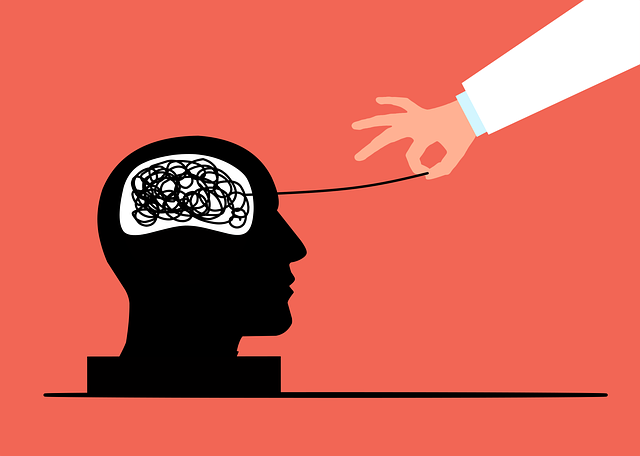The stigma around mental illness, especially in marginalized communities like Northglenn, hinders access to help for individuals with gender identity issues. To combat this, Northglenn Gender Identity Therapy leads initiatives focusing on mental health education and awareness, normalizing conversations and promoting self-care. Through workshops, seminars, and specialized therapy sessions, they challenge negative stereotypes, reduce discrimination, and foster acceptance. These strategies empower individuals to seek support without judgment, enhancing their well-being and self-worth, while also benefiting healthcare providers through stress reduction techniques. Northglenn's collaborative efforts revolutionize mental health care, creating an inclusive environment where everyone can thrive.
Mental illness stigma remains a significant barrier to seeking treatment and support. This article explores efforts to reduce this pervasive issue, focusing on understanding its impact, specific strategies targeting gender identity stigma, and community engagement approaches driving positive change. We also highlight successful local initiatives, like Northglenn’s Gender Identity Therapy program, demonstrating the power of targeted interventions in fostering inclusivity and improved mental health outcomes.
- Understanding Stigma and its Impact on Mental Health
- The Role of Therapy in Reducing Gender Identity Stigma
- Community Engagement Strategies for Positive Change
- Northglenn's Approach: A Local Perspective on Overcoming Stigma
Understanding Stigma and its Impact on Mental Health

Stigma surrounding mental illness is a significant barrier to individuals seeking help and recovery. It often manifests as negative attitudes and stereotypes, leading to discrimination and social isolation. This can be especially impactful for marginalized communities, such as those in Northglenn experiencing gender identity issues. The effect of stigma creates an environment where people might feel ashamed, afraid to discuss their struggles, and hesitant to access the support they need.
At its core, reducing stigma means fostering understanding and empathy. Through initiatives that promote mental health awareness, like those utilizing the Mind Over Matter principles, communities can challenge misconceptions and encourage self-care practices. By normalizing conversations around mental well-being, individuals can build resilience, boost confidence, and take control of their journeys. This approach is crucial in supporting diverse populations, including those navigating gender identity therapy, to thrive with unshaken self-worth.
The Role of Therapy in Reducing Gender Identity Stigma

Northglenn Gender Identity Therapy plays a pivotal role in reducing stigma associated with gender identity issues. Through specialized therapy sessions, individuals can explore and understand their unique identities, fostering self-acceptance and empowerment. This process helps dismantle societal barriers and internalized negative beliefs that often plague those within the transgender community.
Community Outreach Program Implementation and Mental Health Education Programs Design are additional strategies used to combat stigma. By educating the public about gender identity, its variability, and the challenges faced by transgender individuals, these programs promote understanding, empathy, and positive thinking. Such initiatives create a more inclusive environment, encouraging support and acceptance for everyone, regardless of their gender identity or expression.
Community Engagement Strategies for Positive Change

In efforts to reduce stigma surrounding mental illness, Northglenn Gender Identity Therapy has pioneered community engagement strategies that promote understanding and empathy. By organizing workshops, seminars, and open discussions, they facilitate conversations that break down misconceptions and foster an environment of acceptance. These initiatives are crucial in empowering individuals who may be struggling with their mental health, encouraging them to seek support without fear of judgment.
Additionally, Northglenn Gender Identity Therapy highlights the importance of Burnout Prevention Strategies for Healthcare Providers, as professionals working in this field often experience high levels of stress. Implementing Self-Awareness Exercises and Stress Reduction Methods can not only benefit the providers’ well-being but also enhance their ability to offer compassionate care. Such practices contribute to a holistic approach that addresses both the medical and emotional needs of individuals within the community, ultimately leading to positive changes in mental health support systems.
Northglenn's Approach: A Local Perspective on Overcoming Stigma

In Northglenn, a small city with a diverse population, local initiatives have emerged to combat the pervasive stigma surrounding mental illness and gender identity. These efforts are driven by a collective understanding that breaking down barriers begins at the community level. Through partnerships between local therapy centers, support groups, and schools, Northglenn is fostering an environment where individuals can openly access Northglenn Gender Identity Therapy services and engage in emotional healing processes. This collaborative approach ensures comprehensive stress reduction methods tailored to meet the unique needs of each resident.
Focusing on both direct therapy and community outreach, these programs offer trauma support services aimed at addressing the root causes of mental health disparities. By integrating education, awareness campaigns, and individual counseling, Northglenn is fostering empathy and understanding among its citizens. This local perspective on overcoming stigma is not just about providing treatment; it’s about creating a supportive network that empowers individuals to prioritize their emotional well-being without fear of judgment or discrimination.
Mental illness stigma reduction is a multifaceted effort that requires understanding, empathy, and community engagement. As highlighted by Northglenn’s successful approach to overcoming stigma, local initiatives coupled with therapy can significantly impact positive change. Specifically, gender identity therapy, as seen in the case of Northglenn Gender Identity Therapy, plays a pivotal role in reducing biases and fostering inclusivity. By combining community engagement strategies, we can create a more accepting society that prioritizes mental health and well-being for all individuals.












